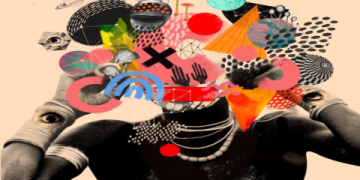In the spring of 334 BCE, a 22-year-old Macedonian king stood on the western shore of the Hellespont, sharpened bronze glinting beneath an Aegean sun. With fewer than 50,000 soldiers—infantry, cavalry, engineers, and scholars—Alexander crossed into Asia and began a decade-long whirlwind that would redraw the map of the known world. The campaigns of Alexander were not merely a sequence of battles; they were a mobile revolution in politics, culture, and imagination.
First came the hammer-blows that shattered Persian dominance. At the Granicus River he proved that Greek-style phalanxes could hold against satrap cavalry. At Issus he turned a narrow coastal plain into a killing ground, Darius III fleeing so hastily that his royal tent fell into Macedonian hands. Finally, at Gaugamela in 331 BCE, Alexander’s oblique advance and feigned retreats cracked the largest empire on earth. Yet victory was never just tactical. Wherever he marched, city-states were re-founded as Alexandrias—beacons of Greek language, law, and gymnasia—while local elites were invited to share power, so long as they bent the knee.
The pursuit of Darius eastward became a metamorphosis. In Bactria Alexander married Roxane, adopting Persian dress and court ceremonial; in Sogdiana he recruited horse-archers who taught his phalangites to fight like nomads. Religious sites from Troy to Siwa welcomed him as son of Zeus-Ammon; Babylonian priests recorded celestial omens that hailed the conqueror as rightful king. Each adaptation widened the gap between the boy who left Pella and the man who ordered his biographer to measure the Caspian, convinced that Ocean circled the world.
By the time his weary veterans reached the Hyphasis River in 326 BCE, monsoon rains had replaced the dust of Mesopotamia, and war elephants trumped the neigh of Thessalian horses. India revealed both the limit of human endurance and the elasticity of Alexander’s ambition: he wanted to sail the Ganges, to conquer the tribes of Magadha, perhaps to circumnavigate Asia until he met the pillars of Heracles in the Atlantic. Only a spontaneous mutiny turned him back, forcing a march through the Gedrosian desert that cost more lives than any battle.
Alexander died in Babylon in 323 BCE, probably of fever, possibly of poison, certainly of exhaustion. He left no adult heir, only the pregnant wife Roxane and a signet ring passed to his aging marshal Perdiccas. Yet the campaigns did not end with his heartbeat; they fragmented into successor kingdoms—Seleucid, Ptolemaic, Antigonid—whose coins bore his image for centuries. Greek became the lingua franca from the Nile to the Oxus; Buddhist sculptors in Gandhara carved Apollo-faced Buddhas; Roman generals kept copies of the Anabasis by their beds.
Today the campaigns of Alexander survive in three dimensions: in the strata of cities he founded, in the DNA of languages that still use his name for “defender of men,” and in the modern imagination that equates conquest with destiny. They remind us that empire is not only territory but story—one that begins with a young king dreaming across the Hellespont and ends wherever humans dare to ask what lies beyond the next horizon.

























